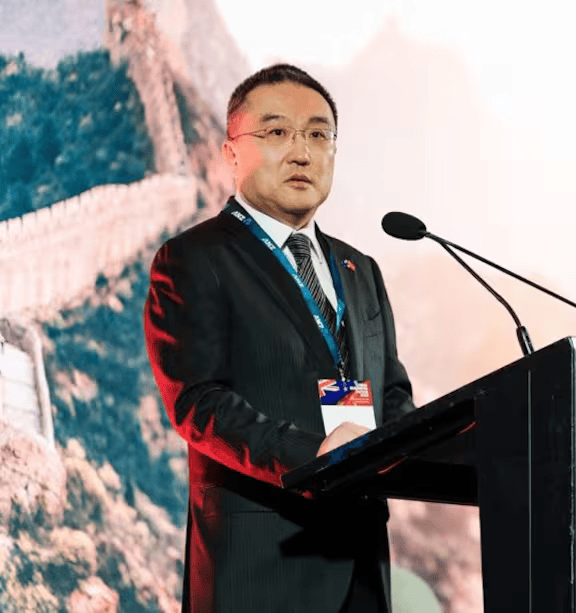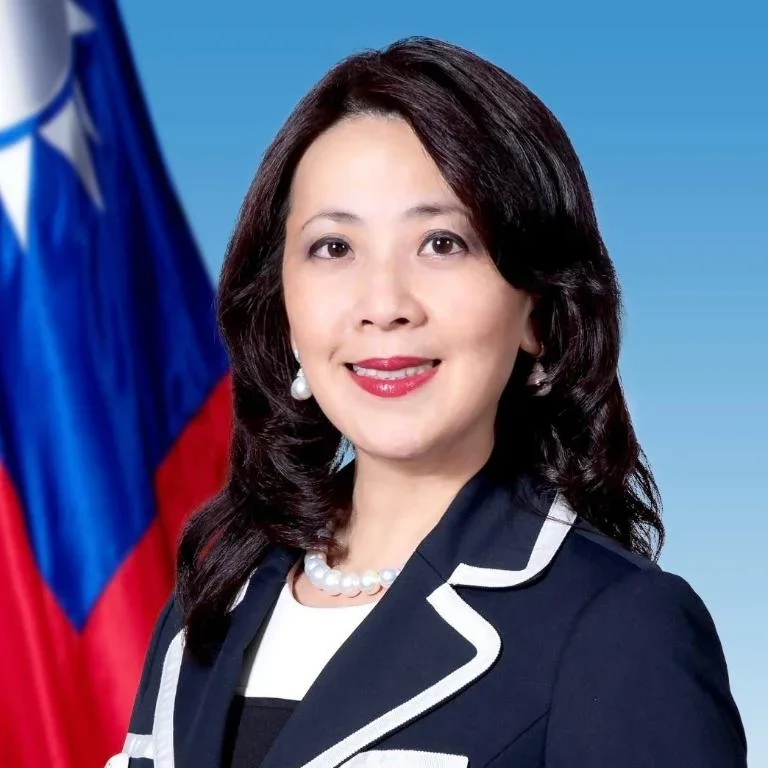China Rebukes NZ MPs Over Taiwan Event in Rare Diplomatic Clash
China’s ambassador to New Zealand has issued a sharp warning to several Kiwi MPs, accusing them of jeopardising the relationship between the two countries after they attended an event celebrating Taiwan’s National Day.
Chinese Ambassador to New Zealand, Wang Xiaolong
The private letter, which few MPs are willing to discuss publicly, has exposed the delicate nature of New Zealand’s ties with Beijing and China’s growing assertiveness in trying to influence political discourse abroad.
According to sources inside Parliament, the letter was sent directly to MPs who were physically present at the Taiwan event, fuelling concerns that the Chinese government is actively monitoring New Zealanders who show support for Taiwan. Some sources allege that Chinese representatives have been dispatched to observe such gatherings, collecting information on attendees.
Only one MP, ACT’s Laura McClure, spoke openly about the incident. “It’s not up to the CCP to decide who a Member of New Zealand’s Parliament meets with. Parliament is sovereign and, in our democracy, MPs are free to exercise their own judgement. That may not be how things operate in China, but here in New Zealand, the ambassador should respect the independence of our Parliament,” she said.
The letter, written by Ambassador Wang Xiaolong, warned MPs that attending the October event was “unacceptable” and “inconsistent with New Zealand’s one-China commitment.” He cautioned that such actions could “undermine mutual trust” and harm the bilateral relationship.
Labour MP Duncan Webb briefly posted the letter online before deleting it, while other MPs — including members of the Inter Parliamentary Alliance on China (IPAC) — declined to comment. National MPs also remained tight-lipped, and Labour’s Tangi Utikere, who recently visited Taiwan, said it was “common for the embassy to write to MPs who travel to Taiwan or participate in events.”
Taiwan's representative to New Zealand, Joanne Ou. Photo: Supplied
Taiwan’s representative in New Zealand, Joanne Ou, hit back at the ambassador’s actions, accusing Beijing of harassment. “This is not the first time the Chinese Embassy attempted to boycott or threaten activities of New Zealand politicians, officials, academics, journalists, and communities. It is our firm belief that New Zealand MPs, just like all citizens, have their rights to exercise independent decision making,” she said.
Ou added that Taiwan’s democratic identity and distinct culture warranted recognition, saying that celebrating its National Day “is not a radical statement.”
McClure reiterated that MPs are entitled to attend events and express opinions even if they differ from the Government’s stance. “New Zealanders are entitled to hold and share a variety of perspectives, and to be heard by their representatives. The ambassador ought to understand the difference between Parliament and the Government,” she said.
China’s outreach has also included meetings with Māori leaders. McClure noted that Chinese officials recently met with Te Pāti Māori co-leader Rawiri Waititi to discuss “direct relationships between Māori and China.” She said such meetings did not represent New Zealand’s official foreign policy.
While Taiwan functions with its own government, military, and economy, most countries — including New Zealand — do not officially recognise it as an independent state due to Beijing’s claim of sovereignty. Instead, New Zealand maintains “non-diplomatic relations” through the New Zealand Commerce and Industry Office in Taipei, while Taiwan operates its own de facto embassy in Wellington.
A spokesperson for Foreign Minister Winston Peters said there is a “well-established practice” of MPs engaging with Taiwan and that such activities are “entirely consistent with our one China policy,” which has been in place since 1972.
The incident has reignited debate about the extent of China’s influence in New Zealand and how far its representatives are willing to go to shape domestic political conversations about Taiwan.


